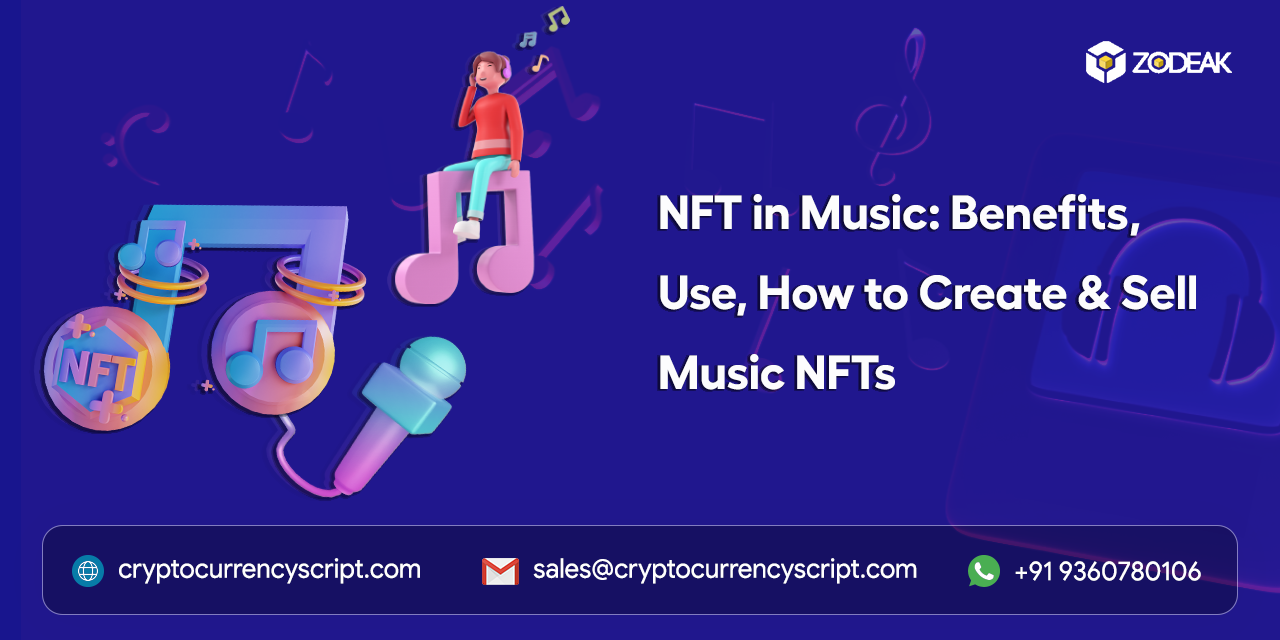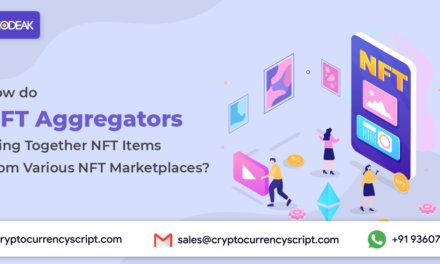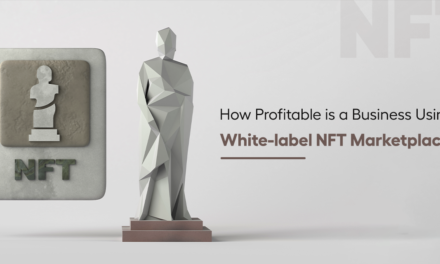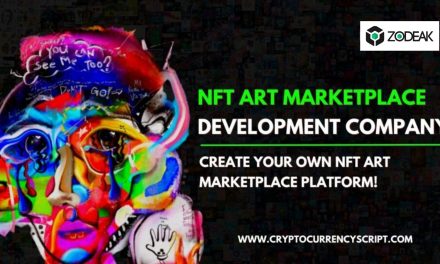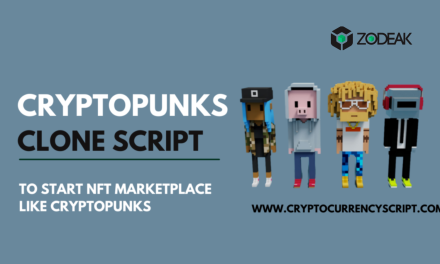In recent years, digital music streaming services allowed musicians to build up a sizable online fan base and listeners. On the other hand, Audius, Catalog, and other platforms allow artists and musicians to create and sell their NFT in music, including albums, songs, and royalties.
NFT in Music is a fairly recent innovation, with early experiments and projects starting in 2020 and taking off in 2021. According to an analysis by MusicWeek, NFTs in music had the highest average sale price of $4,500 among all NFT categories. As the market for the NFTs in music industry continues to evolve, we may anticipate seeing more innovations in them.
If you’re a creator and still not using NFT, you’re missing out on millions of dollars ~ Olawale Daniel, CEO & Founder at TechAtLast
In this blog, we explore NFT in music and see how to create Music NFTs and sell them in the marketplace in the following discussions.
What are Music NFTs?
Hope all are familiar with the concept of a non-fungible token, which is a digital asset representing ownership or rights to a particular digital creation or content.
Likewise, music NFTs are a type of non-fungible token that represents a unique and verifiable digital asset such as a song, album, or other musical creation. Specific information about NFTs, including ownership, authenticity, and provenance, is stored on the blockchain which is immutable.
NFT in Music helps artists and musicians monetize their work in innovative ways by selling rights to musical works. These include exclusive access to unreleased songs, personalized fan experiences, and the option to bid on rare and unique musical items. Also, these NFTs allow fans a way to support their favorite artists directly.
The Benefits of NFT in Music
Music NFTs can provide a way for artists to bypass the traditional music industry and take greater control over their creative output and generate revenue. They offer a myriad of benefits to musicians & the music industry:
New Revenue Streams
Essentially, NFTs help musicians monetize their musical work in new and innovative ways. It allows artists to tap into new revenue streams such as concert tickets, merchandise, or exclusive content previously unavailable to them.
Increased Fan Engagement
NFTs allow artists to engage more deeply with their fans and followers. It highly benefits their fans to have backstage passes or meet-and-greets, which provide a sense of exclusivity and improve the artist-audience bond.
Ownership and Control of Digital Assets
NFTs give musicians control over their digital assets by providing a secure and immutable record of ownership. By using NFTs, musicians can ensure that they are properly paid for their work and that their fans receive authentic and high-quality digital assets.
Transparent and Secure Transactions
Non-fungible tokens are created using smart contracts on blockchain technology, which ensures secure and transparent transactions. This allows artists to maintain control over their digital works and protect their intellectual property rights.
Expanded Global Reach
NFTs free musicians from the limitations of traditional distribution methods and provide access to a global audience. This increases the opportunity for artists to make money by selling their music and merchandise directly to fans worldwide.
Enhanced Branding Opportunities
Musicians can build their brand and stand out in a crowded field by creating unique and valuable content. NFTs allow artists to express their brilliance while providing fans with a unique experience that cannot be found anywhere else.
Therefore, NFT in Music offers a range of benefits that will help artists and the music industry thrive in the rapidly evolving digital landscape. Now let’s see the use case of Music NFTs next.
Use Cases of NFT in Music
As the music NFT industry continues to evolve, it may play an increasingly important role in shaping the future of music. NFTs offer a wide variety of use cases, here are some use cases that can help musicians and other industry players
Ticketing and Event Access
NFTs can be used for ticketing and event access, allowing fans to purchase and store their tickets securely on a blockchain. This reduces the risk of fraud and scalping and allows musicians to offer exclusive experiences to their most dedicated fans.
Music Merchandise
NFTs can also be used for music products such as limited edition vinyl releases or personalized items. By using NFTs, musicians can offer exclusive and unique items to their fans, creating a strong connection between the artist and their audience.
Exclusive Music Releases
NFTs can be used for exclusive music releases, such as limited-edition digital albums or singles. This allows musicians to offer their fans unique and exclusive content that cannot be found elsewhere, increasing fan engagement and loyalty.
Personalized Fan Experiences
NFTs can be used to provide personalized fan experiences such as virtual meet and greets, artist messages, or exclusive access to a recording studio. This creates a more intimate and engaging experience for fans. And allows musicians to deliver exclusive content to their most dedicated supporters.
Related Article: NFT MUSIC MARKETPLACE DEVELOPMENT
Successful Implementations of NFT in Music
NFTs allow artists to experiment, empower others, and push the limits of how they engage with their followers ~ Paris Hilton
Several successful Music NFTs implementations have proved the technology’s potential to transform the way to monetize and distribute musical content. Here are some prominent music NFT examples:
Kings of Leon: When you see yourself album as an NFT, becoming the first major music act to do so. It includes a digital format of album, exclusive audiovisual art, and a golden ticket offering lifetime VIP access to concerts. These music NFTs were sold for over $2 million.
Grimes: Canadian musician Grimes auctioned several pieces of digital art and music as NFTs, generating over $6 million in sales. NFTs include digital art, short videos, and a unique music video.
3LAU: Electronic dance musician 3LAU sold an NFT album that included 33 unique tracks, each represented by NFT. NFTs gave buyers access to exclusive content such as backstage passes and a percentage of the album’s royalties. These NFT-based albums sold over $11 million.
The Weeknd: R&B artist has teamed up with augmented reality platform Nifty Gateway to release the NFT collection. The collection, which featured digital artwork and animation from ‘The Weeknd’ fetched more than $2 million at auction.
This NFT in music demonstrates the potential to create new revenue streams and engage with fans in innovative ways. As more industry players explore the possibilities of NFTs, it is likely that we will see even more groundbreaking implementations in the future.
How to Create & Sell Music NFTs?

Creating and selling music NFTs is a relatively new and complex process. Here are the steps artists, musicians, and other industry players can follow to create and sell music NFTs:
Step 1: Choose a Platform
As there are many NFT marketplaces available for music, such as OpenSea, Rarible, and SuperRare. Musicians should research these platforms and choose the one that best suits their needs.
Step 2: Create the NFT
After choosing the platform, musicians can create the NFT by uploading the content they want to tokenize. It may include a song, movie, short video, album, or collectible. They can then choose the type of NFT they want to create, such as a unique or semi-fungible token.
Step 3: Set the Price
Musicians can set the price based on the perceived value of the content and the demand from their audience. Moreover, they can also choose to sell the NFT through an auction, where buyers can bid on the content until the auction ends.
Step 4: Market the NFT
After pricing the NFT, one can market it to the audience via social media channels for promotion. And creators can also partner with other artists or influencers to reach a global level audience.
Step 5: Sell the NFT
Buyers can purchase the NFT using cryptocurrencies, such as Ethereum or Bitcoin, through the NFT marketplace. After selling the NFTs, the musician will receive the payment and the buyer will receive the digital asset.
These are the steps to create and sell your music-based NFTs on the market. More importantly, marketing and promoting your NFTs is crucial to your success. For that, you need to use existing social media and marketing channels to promote your NFTs. Also, consider partnering with influencers or other musicians to reach a wider audience.
Hope you understand what NFT in music is, its benefits, and how to create and sell music NFTs. Now let’s wrap up this blog with a few words…
Wrapping Up!
People today do not comprehend NFTs, Crypto & Metaverse in the same way that they did not grasp online shopping in 1995 ~ Anuj Jasani
As a conclusion, NFT offers an exciting new frontier for musicians and fans. And they have the potential to change the way we think about ownership and value in the music industry.
If your mind wants to know more information about non-fungible tokens and NFT Marketplace Development, then hit the SUBSCRIBE button for more blog updates in the future. Let us know if you have any doubts or difficulties with the NFT in music so we will do our best to clarify it.

